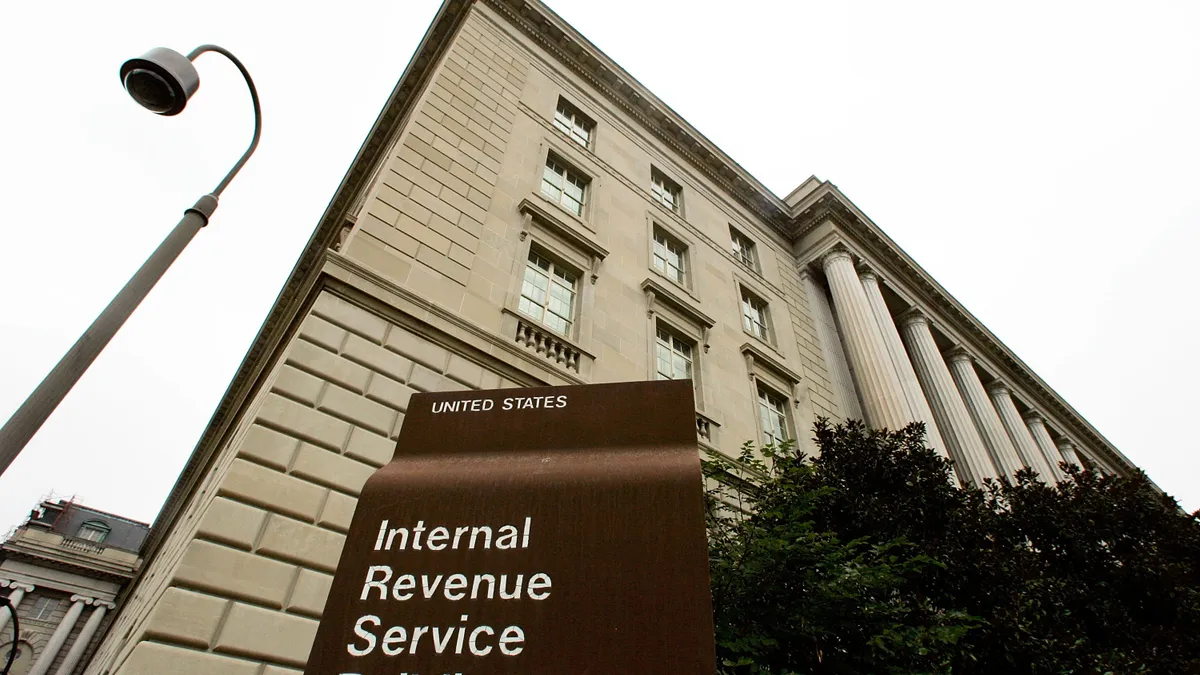Dive Brief:
- In a move that could result in the federal government going back through companies’ taxes to see if they overcharged affiliates for an intragroup loan, the IRS in a memo says a loan between a parent company and an affiliate should be at the same rate that the affiliate would get from an outside lender that takes into account the financial strength of the parent company.
- The memo is significant because it means companies that have loaned an affiliate money at a rate based on the affiliate’s standalone financial strength could find the IRS questioning whether they charged too much. “Taxpayers should remain vigilant about pricing on intercompany loans because the borrower's relationship in a controlled group may be evaluated for purposes of arm's-length pricing,” EY says in an analysis.
- The memo was released in December but unless in-house counsel are current on federal tax policy, they might not be aware of it.
Dive Insight:
The IRS’s memo doesn’t have the force of law but it indicates the agency’s latest thinking about tax law and could be applied retroactively, which means it’s possible the agency could look at the treatment of intragroup loans made in previous years.
“The IRS … may assert the … principles retroactively to pre-existing intragroup debt or guarantees,” the EY analysis says.
Companies often make loans to their affiliates if they’re in financial distress, especially if the affiliate supplies goods or services that are integral to the parent’s business. Other affiliates within the enterprise could also step in to help out.
If the practice of the parent company is to underwrite a loan to the affiliate at a rate that’s based on the affiliate’s standalone credit rating, that rate might be considered too high based on what the IRS is saying in its memo. That’s because an outside lender would evaluate the creditworthiness of the affiliate based on its relationship with the parent company or other affiliates.
“Group membership may improve the debt terms available to a controlled borrower based on financial support expected from another group member,” James Kelly, the IRS’ deputy associate chief counsel, says in the memo.
In an example the IRS provides, an affiliate could expect its credit rating to improve from B, as a standalone company, to BBB, as an affiliate of a financially strong parent, in this case a foreign parent, and any outside lender would factor that stronger rating into its underwriting.
Thus, a loan underwritten with a 10% interest rate based on a B rating could improve to an 8% rate based on the BBB rating.
The better rate, the IRS says, is “based on the implicit financial support of [the affiliate’s] group members.”
The IRS says it may go into companies tax filings and “adjust interest rate charges in loans between sister subsidiaries” if it finds companies are overcharging on their rates in intragroup loans. But the EY analysis says it’s not that simple. An intragroup loan might warrant a higher rate because it’s giving the affiliate other benefits, like easy access to capital and a reduced administrative burden.
For that reason, a company’s calculation of the overall benefit of an intragroup loan vs. an outside loan “should be broad and holistic,” EY says.











